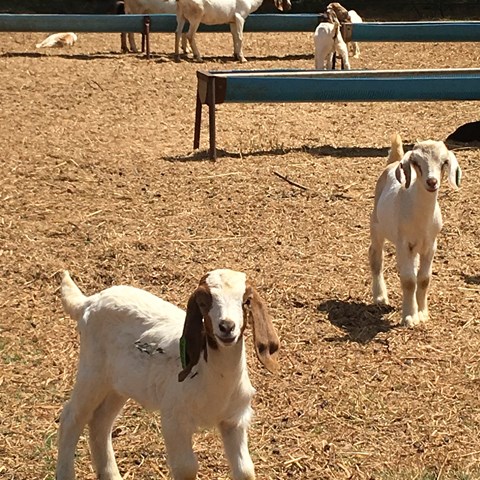Facts:
Authors
Klara Fischer, Department of Urban and Rural Development, SLU
Sara Lysholm, Department of Clinical Sciences, SLU
Jonas Johansson Wensman, Department of Clinical Sciences, SLU

The policy brief “Factors enabling sustainable goat production in Zambia” is based on a two-day workshop in Lusaka, Zambia, which gathered key chain actors, specific to the goat value chain. The brief discusses key challenges and opportunities in goat production and important health problems to pay attention to, as perceived by each stakeholder group.
Market participation among smallholder livestock farmers has been recognized as a poverty reduction strategy. In recent years small livestock, specifically sheep and goats, started to receive growing attention. These small ruminants are accessible to households and individuals who do not have the capacity and means to keep and trade in larger livestock. Goats have a unique potential to alleviate poverty and ensure food security even under harsh climatic conditions. However, with the growing livestock trade and market engagement, the risk for spreading infectious diseases also increases.
The workshop gathered key small ruminant value chain actors, specific to the goat value chain: farmers, traders, breeders, veterinary assistants, livestock officers, extension workers, veterinarians, researchers, government representatives working with small ruminants from city to the national level, and NGO representatives working with small ruminant production and smallholder livelihoods.
Read the policy brief in full text.
The policy brief is published by SIANI, the Swedish International Agricultural Network Initiative, with authors from SLU.
Klara Fischer, Department of Urban and Rural Development, SLU
Sara Lysholm, Department of Clinical Sciences, SLU
Jonas Johansson Wensman, Department of Clinical Sciences, SLU
Klara Fischer, Associate Professor in rural development and senior lecturer in environmental communication.
Department or Urban and Rural Development
Telephone: 018-671771
E-mail: klara.fischer@slu.se
Sara Lysholm
Postdoctor at the Department of Clinical Sciences; Ruminant Medicine Unit
Telephone: +4618671134
E-mail: sara.lysholm@slu.se